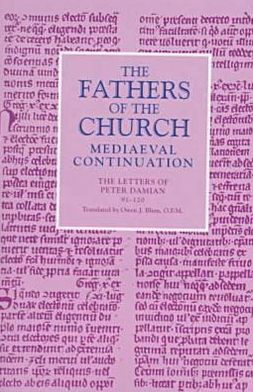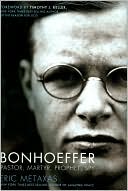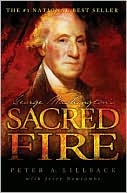Letters, 91-120
This fifth volume of the Mediaeval Continuation is the fourth of the letters of Peter Damian, an eleventh-century monk and man of letters. Written during the years 1062-1066, these letters deal with a wide variety of subjects. Some letters are of historical interest, others approach the size and scope of philosophical or theological treatise. Damian's correspondents range from simple hermits in his community to abbots, bishops, cardinals, and even to Pope Alexander II. Among these letters are...
Search in google:
This fifth volume of the Mediaeval Continuation is the fourth of the letters of Peter Damian, an eleventh-century monk and man of letters. Written during the years 1062-1066, these letters deal with a wide variety of subjects. Some letters are of historical interest, others approach the size and scope of philosophical or theological treatise. Damian's correspondents range from simple hermits in his community to abbots, bishops, cardinals, and even to Pope Alexander II. Among these letters are to be found one addressed to the patriarch of Constantinople, two to Damian's sisters, one to the Empress Agnes, and even a few to such distant personages as the young King Henry IV and the Archbishop Anno of Cologne.Like its companions, this volume uses Damian's thought to understand an important and gripping period in the history of church and state. Clearly, the most significant letter in this collection is Letter 119, written in 1063 to Abbot Desiderius of Monte Cassino and his monks, on the omnipotence of God. Translated here for the first time into English, Damian's treatise on Divine Omnipotence demonstrates his control of both theological and philosophical methodology. His opponents are contemporary rhetoricians whose denials of God's total potency in dealing with his creatures' contingencies in time past, present, and future opens them to the charge of heresy.Though Damian's vocabulary frequently challenges the combined dictionary resources of classical, patristic, and mediaeval Latin, Owen J. Blum's careful translation will guarantee the transmission of Damian's thought to all levels of readers throughout the world.
THE FATHERS OF THE CHURCH\ MEDIAEVAL CONTINUATION \ \ THE CATHOLIC UNIVERSITY OF AMERICA PRESS\ Copyright © 1998 THE CATHOLIC UNIVERSITY OF AMERICA PRESS, INC.\ All right reserved.\ ISBN: 978-0-8132-0816-9 \ \ \ Chapter One\ LETTER 91 \ Peter Damian to Constantine Lichoudes, the patriarch of Constantinople (1059–1063). This gently worded letter may have been inspired by Desiderius, the abbot of Monte Cassino, who in 1058 was on mission to Constantinople. Its subject was the burning issue of the Filioque. While the Greek Church held that the Holy Spirit proceeds only from the Father, the Roman Church believed in a double procession, from both the Father and the Son. Damian defends the Roman position using both Latin and Greek sources. In the course of his argument, he clearly affirms the magisterial primacy granted by God, universally and for all time, to Peter and his successors.\ (1062)\ TO SIR LICHOUDES, the most blessed patriarch, the monk Peter the sinner offers his servitude.\ (2) The devout bishop of the church at Forlimpopoli related to me that he had heard from the lips of the most reverend Dominic, patriarch of Grado, that you had posed a question of great importance for the Catholic faith in your letter to the Apostolic See, and that with vigilance becoming the episcopal office, you had requested of Pope Alexander that it be resolved with unimpeachable evidence from the testimonies of the Scriptures. This question was: Why do the Latins say that the Holy Spirit proceeds from the Father and from the Son, while the Greeks believe that he proceeds only from the Father? I now make bold to demonstrate what I think about this question with the help of the same Holy Spirit here under discussion. It is not that I have been put under obligation by you in this matter, or that it was commanded by the authority of the Roman pontiff. For why would he deign to assign such a weighty subject to an unskilled person, when it cannot be doubted that there are so many holy and very skillful men always at his side? But even though I am a slothful and useless servant in the household of my Lord Jesus, since it was inconvenient for them to accept his request, I am pleased to undertake the task, and no one has seen fit to challenge me.\ (3) Your Holiness is to be exalted for his laudable prudence, with deserved acclamation, that in resolving this question about the Holy Spirit you came to not just anyone, but specifically to Peter, whom you undoubtedly recognize as having received the keys of heavenly wisdom and power. Nor was it proper that you, a man of such dignity and wisdom, should seek out from any other the hidden things of heavenly mystery, but from him especially, whom flesh and blood could not instruct, but to whom God himself saw fit to reveal his secrets directly. "Simon, son of Jonah," he said, "blessed are you because flesh and blood did not reveal this to you, but my Father who is in heaven." For the Creator of the world chose him in preference to all other mortals on earth, and granted to him for all time the privilege of magisterial primacy within the Church, so that anyone who wishes to know anything profound about God might have recourse to the divine pronouncements and doctrine of this teacher. One should not be ashamed humbly to present a problem to him for his solution, even though one is not ignorant of what is sought. Was the angel that came from heaven not able to teach Cornelius? Yet he sent him to Peter to learn what he should do. "Send men to Joppa," he said, "to Simon who is called Peter, and ask him to come. He is lodging in the house of Simon the tanner by the sea. He will tell you what you should do." The holy angel could obviously have taught this Gentile what was necessary for his salvation, but he did not wish to usurp the teaching office he knew had been entrusted to Peter.\ (4) Why, therefore, should we wonder that a bishop, even though he is outstanding for holiness and thoroughly instructed in the Word of God, should approach the teaching authority of the prince of the apostles, when even an angel sent Cornelius, the first-fruits of the Gentiles, to him for instruction? These are the words that Paul wrote to the Galatians, "Paul, an apostle," he said, "not by men nor through man, but through Jesus Christ and God the Father, who raised him from the dead." And so he, who had been made an apostle, not by men but by Christ himself and God the Father, and who had been adequately instructed by the author of wisdom, still went to the teaching authority of Peter, not for a brief time only, but remaining with him for several days as if he were in a heavenly school. "I went to Jerusalem," he said, "to see Peter, and stayed with him for fifteen days." It was, therefore, by the mystic numbers seven and eight that he learned the hidden mysteries of the Old Testament along with the New.\ (5) Hence it was proper that your holy prudence should direct the question for solution to the see of him to whom a man uneducated in the faith was sent by the angel, and by whom also the apostle Paul, who had already been instructed by God, was more thoroughly taught. And besides, it was said through Moses, "You have Aaron and Hur with you; if any dispute should arise, you shall refer it to them."\ (6) May Aaron be present, that is, Christ, "the mountain of fortitude"; may Hur also be present, namely, the "fire" which is the Holy Spirit himself of whom I write, that he might use me, the least member of the Roman Church, to clarify what is hidden to some, and that Christ, the key of David, might unlock this difficult question as if it were a seal that closes the mystic book.\ (7) First of all, therefore, let me explain the source of this ignorance that allows almost all the Greeks and some Latins to maintain that the Holy Spirit does not proceed from the Son, but only from the Father. This they assert from the words of the Lord by which he says, "For it is not you who speak, but it is the Spirit of your Father who speaks in you." And again, "Behold, I send to you the promise of my Father." And this statement, "But when the Advocate has come, whom I will send to you from the Father—the Spirit of truth who proceeds from the Father—he will bear witness about me." Again the Lord says of him, "I will ask the Father, and he will give you another Advocate to be with you forever—the Spirit of truth." And elsewhere he says, "But the Advocate, the Holy Spirit whom the Father will send in my name, will teach you everything." And again, "If you, then, though you are bad, know how to give your children what is good for them, how much more will your heavenly Father give the good Spirit to those who ask him."\ (8) Citing these texts, therefore, and the like, not only from the Gospels but from other scriptural evidence as well, they assert that the Holy Spirit in no way proceeds from the Son, but only from the Father. Some such statement which seems to agree with this opinion is often found even in the doctors who use the Latin language. Clearly blessed Jerome, in his explanation of the faith sent to the bishops Alippius and Augustine, says among other things, "We believe also in the Holy Spirit, true God, who proceeds from the Father, equal in all things to the Father and to the Son." Augustine also, inveighing against Maximus the heretic, says, "The Son is from the Father, the Holy Spirit is from the Father." Even Pope St. Leo, on the silver plaque erected before the most sacred body of St. Paul the Apostle, says among other formulations of his faith, "And [we believe] in the Holy Spirit, the Lord and giver of life, who proceeds from the Father—with the Father and the Son to be jointly adored and glorified." In the creed of the Council of Nicaea, moreover, it says, "We also believe in the Holy Spirit, who proceeds properly from the Father, and who just as the Son is true God"; and a little further on, "And that the Holy Spirit is also true God we find in Scripture, and that he proceeds properly from the Father, and that he always exists with the Father and the Son." And again it says, "The Son is from the Father, and the Holy Spirit proceeds properly and truly from the Father."\ (9) Yet these and similar testimonies from the Scriptures or the words of the holy doctors are not prejudicial to the Catholic faith, by which, just as we believe that the Holy Spirit proceeds from the Father, so we maintain nonetheless that he proceeds from the Son as well. For while both the Lord himself and the holy doctors of the Church agree in asserting that the Holy Spirit proceeds from the Father, never do they hold that he does not proceed from the Son. Rather, when the Holy Spirit is said to proceed from the Father, it must be believed that he proceeds also from the Son, because there is no doubt that the Father and the Son are of one and the same substance. For when the Son says, "The Father and I are one," how can the Holy Spirit both proceed and not proceed from that which is one?\ (10) But something ineffable, which cannot be conceived by any natural capacity of human reason and cannot be discerned by any insight or application of the mind, must be gathered only from statements found in the Word of God. For as the Apostle says, "The Holy Spirit searches everything, even the depths of God. Who among men knows the things which pertain to man except man's own spirit within him? In the same way, no one knows the things which pertain to God except the Spirit of God. We, moreover, have not received the spirit of this world, but the Spirit who is from God, so that we may know all that we have been given by God; we utter these things not in words taught by human wisdom but in the teaching of the Spirit." For how can human insight attain to the knowledge of how the Father ineffably begets the Son, of how the Holy Spirit proceeds from the Father or from both, unless almighty God reveal it to mortal men through the instrumentality of the prophets or through his incarnate Word? "For faith," as the Apostle says, "is the substance of things hoped for, the evidence of things not seen." Moreover, we have the solid statement of John that says, "Here and now, dearest friends, we are God's children; what we shall be has not yet appeared. We know that when it appears, we shall be like him, because we shall see him as he is." Therefore, to comprehend this supreme and ineffable mystery of the true faith, let us not follow the investigation of what men think, but embrace only the truth of the heavenly message, that above all else we believe about God what is divinely revealed, and that the constancy of our faith may not falter in those things which the supreme and incomprehensible Truth asserts.\ (11) Moreover, neither among the Greeks nor among the Latins is there any question that the Holy Spirit proceeds from the Father. Nor need one cite evidence for this, since the texts we quoted above declare this very thing. But that he proceeds from the Father, and at the same time, from the Son, which is the question we are addressing, we learn from the authority of the Gospels, for the Lord says, "But the Advocate, the Holy Spirit whom the Father will send in my name, will teach you everything." And elsewhere, "When the Advocate has come whom I will send you from the Father." Since, therefore, the Father sends the Advocate in the name of the Son, and the Son sends him from the Father, it is evident that because he is sent by both who are undoubtedly one, he also surely proceeds from both. And since he is often called the Spirit of Truth, and since Christ is the Truth, he who is the Spirit of Truth is undoubtedly the Spirit of the Son. And so elsewhere the Lord says, "He will glorify me, because he will receive from what is mine." He will indeed receive from what is mine, because he is also in me. Thus also in Isaiah the voice of the Father said to the Son, "My Spirit which is in you and my words which I have put in your mouth shall never depart from your mouth and from the mouth of your descendants forever." This same Spirit is the power that went out from him, as we read in the Gospel, and cured them all.\ (12) And again he said of the woman cured of her hemorrhages, "I felt that power had gone out from me." And so the Apostle wrote to the Galatians, "Because you are the sons of God," he said, "God has sent into your hearts the Spirit of his Son, crying 'Abba! Father!'" And elsewhere, "If a man does not possess the Spirit of Christ, he does not belong to him." 36 Note that the Apostle here says, "The Spirit of his Son," or "the Spirit of Christ." Does he even add, "and of the Father," so as to say "the Spirit of Christ and of the Father"? In speaking of the Spirit of the Son without mentioning the Father, does it follow that he is denying that the Spirit belongs to the Father? The same Apostle also says to the Philippians, "I know that this will profit me unto salvation through your prayer and the assistance of the Spirit of Jesus Christ." So it is that the Wisdom of God, which is undoubtedly Christ himself, says, "My spirit is sweeter than honey, and my inheritance sweeter than dripping honey and the honey-comb."\ (13) Therefore, just as when we speak of the Spirit of the Son or of Christ, it does not immediately follow that we can disunite him from the Father, so too when we call him the Spirit of the Father, we cannot separate him from the Son. Blessed Peter also says, "This salvation was the theme which the prophets sought out and explored, those who prophesied about the glory which is to come in you. They tried to find out to what time and what circumstances the Spirit of Christ in them was pointing at while foretelling the sufferings in Christ and the glories to follow." But that the Son sent the same Spirit upon the disciples is stated by Peter in the Acts of the Apostles, when he says, "Exalted thus at God's right hand, he received the promise of the Holy Spirit from the Father and then poured out this gift, which you see and hear." And so it was that when he had risen from the dead and had appeared to the disciples, that he might clearly show that the Spirit proceeds from him, he breathed on them and said, "Receive the Holy Spirit."\ (14) Normust we think that this bodily breathing, which then disturbed the air, was the Holy Spirit, but by this apt figure he fitly indicated that the Holy Spirit proceeded from him. In speaking of the Son of God, Isaiah also added, "The rod of his mouth shall strike the earth, and with the Spirit from his lips he shall slay the wicked." Agreeing with this statement, Paul says in the epistle to the Thessalonians, "Then he will be revealed, that wicked one, whom the Lord Jesus will destroy with the Spirit from his mouth and annihilate by the radiance of his coming." This is also mystically described in the book of blessed Job, when it is said, "He will listen to what is heard in the terror of his voice, and to the sound that proceeds from his mouth." In this passage then, the mouth of the Father means the Son, through whom in this case the establishment of God's law is promulgated for us. But the sound that proceeds from his mouth is the Holy Spirit, who resounded in a marvelous fashion as he came forth from the Son, and with a sudden noise, speaking in a variety of tongues, descended upon the apostles. "And suddenly," we read, "there came from the sky a sound like that of a wind arriving in great vehemence." Now this sound that came forth from the mouth of Christ is undoubtedly the two-edged sword which in the Apocalypse John saw coming out from his lips. And the psalmist also says of him, "By the Lord's word the heavens were established, and by the Spirit from his mouth all their host was made." Therefore, as I have said, since the mouth of the Father is the Son, we can only interpret the Spirit from the mouth of God to be the Spirit of Christ.\ (15) But if one should ask, "Since the Son is of the substance of the Father, and the Holy Spirit is also of the substance of the Father, why is one the Son and the other not also the Son?" it would not be inconsistent to reply as follows. The Son is from the Father, the Holy Spirit is from the Father, but the former is begotten, while the latter proceeds; and therefore the former is the Son of the Father, from whom he is begotten, while the latter is the Spirit of both because he proceeds from both. Nevertheless, this begetting and procession are not only ineffable but also totally incomprehensible. But in those things which we are unable to penetrate with the power of our mind, we apply a sure faith to those through whom the Holy Spirit has spoken, just as if the matter lay clearly before our eyes. And even though these hidden mysteries of profound depth are unknown to us, still we are not in doubt about what the Lord has spoken, we are also not uncertain about what is found in the pronouncements of the prophets.\ (16) But perhaps you will object to what I have said [in the following terms]: You do not understand the Gospel and do not know the import of the oracular statements made by the prophets, which on the surface often mean one thing literally while they contain something else in the truth of the spiritual understanding. To this I find no difficulty in replying that before our time there were many apostolic and Catholic men of whose attested devotion and sanctity there remained absolutely no doubt because of the many signs of virtue which they showed. It was these men who explained the orthodox faith in simple terms, and left to posterity a record [of their teaching] in written form. It was clearly their task to derive these matters from the statements of the apostles and the prophets, and there is nothing else left for us to do but only to obey the definitions [of doctrine] which they have determined beforehand. Surely they were under obligation to investigate these matters carefully and diligently, and to define the rule of faith with certainty; we must simply follow the path along which our forefathers have preceded us.\ (Continues...)\ \ \ \ \ Excerpted from THE FATHERS OF THE CHURCH Copyright © 1998 by THE CATHOLIC UNIVERSITY OF AMERICA PRESS, INC.. Excerpted by permission of THE CATHOLIC UNIVERSITY OF AMERICA PRESS. All rights reserved. No part of this excerpt may be reproduced or reprinted without permission in writing from the publisher.\ Excerpts are provided by Dial-A-Book Inc. solely for the personal use of visitors to this web site. \ \
Contents\ Preface....................vii\ Abbreviations....................ix\ Select Bibliography....................xi\ Concordance....................xvii\ Letter 91....................3\ Letter 92....................18\ Letter 93....................27\ Letter 94....................33\ Letter 95....................46\ Letter 96....................51\ Letter 97....................68\ Letter 98....................87\ Letter 99....................103\ Letter 100....................107\ Letter 101....................120\ Letter 102....................123\ Letter 103....................142\ Letter 104....................145\ Letter 105....................163\ Letter 106....................174\ Letter 107....................192\ Letter 108....................195\ Letter 109....................207\ Letter 110....................227\ Letter 111....................248\ Letter 112....................258\ Letter 113....................286\ Letter 114....................294\ Letter 115....................306\ Letter 116....................315\ Letter 117....................318\ Letter 118....................332\ Letter 119....................344\ Letter 120....................387\ Index of Proper Names....................399\ Index of Sacred Scripture....................411








